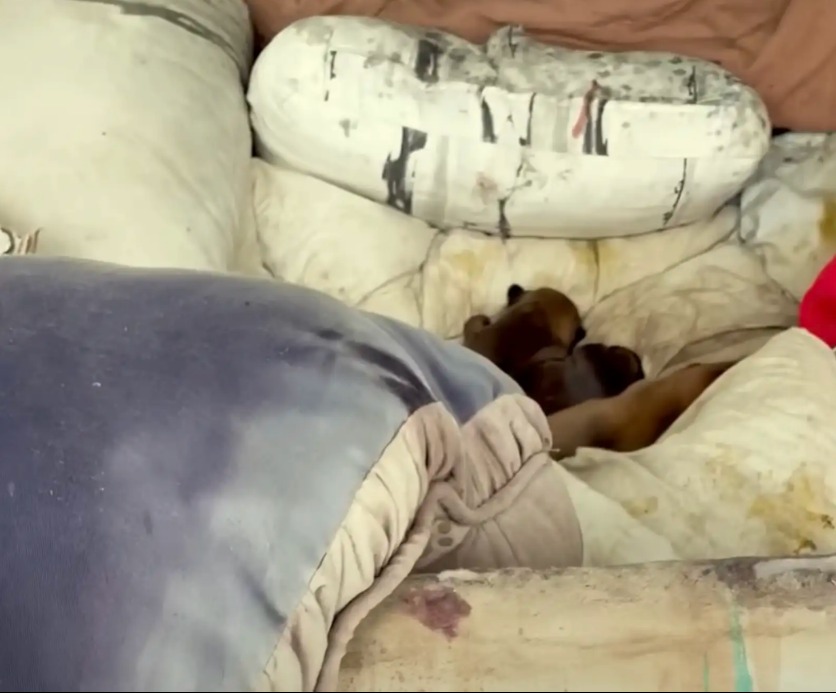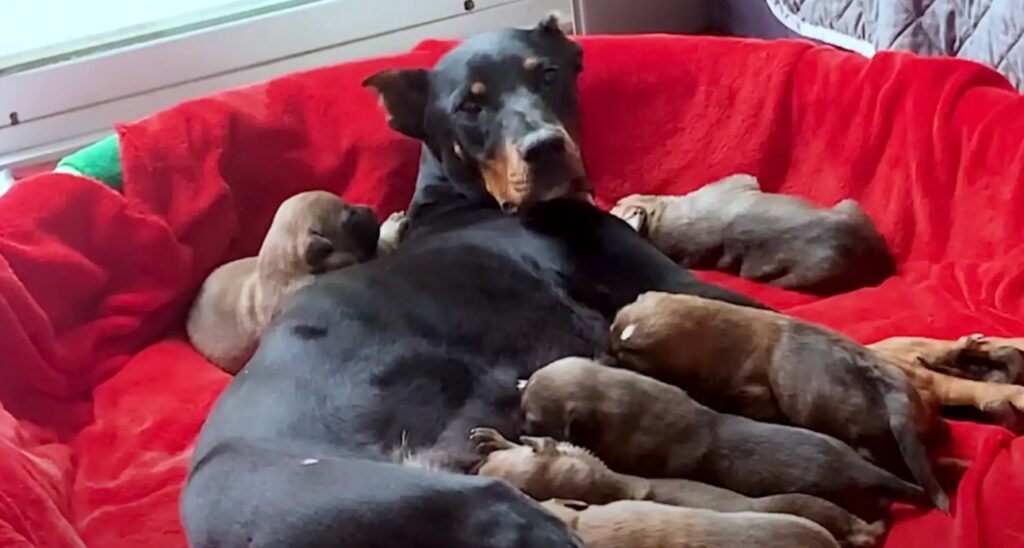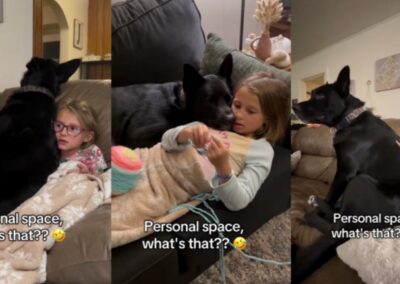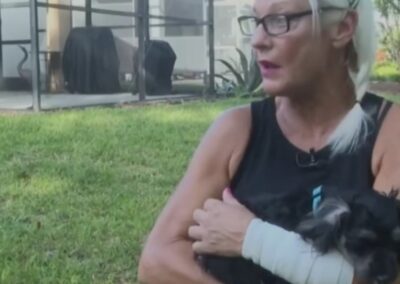
She thought she was just walking past a ragged tent—until she glimpsed movement. Something small. Something vulnerable. Something living.
When the woman peeked inside the tattered canvas flap, her heart clenched: there, piled together in the dirt, were newborn puppies.
Dozens of them. Meek, silent, cold, abandoned. Their mother was nowhere in sight.
It was a scene that burned itself into her memory. She didn’t see litters in idyllic shelters—she saw life on edge.
Without hesitation, she called for help. Animal rescue volunteers arrived quickly. They carried flashlights, blankets, warmth, urgency.
Under that torn, fragile canopy, they worked fast. The puppies were too young—eyes shut, fragile bodies, barely breathing in some cases.
They paced against time.
They gathered them gently. Wrapped them in cloth, warmed them against their chest, fed them small drops of formula.
Each tiny body was precious. Each breath was a miracle. Rescue workers murmured reassurances.
The puppies trembled at first, but slowly, in the warmth and human voice, they began to settle.

The cause behind the abandonment remained unknown—neglect, cruelty, or desperation. But none of that mattered in that moment.
What mattered was care. What mattered was presence. What mattered was rescue.
From that night on, those puppies would know a world different than the one they were born into.
They would know warmth, veterinary care, soft bedding, gentle hands. They would know names instead of being forgotten.
They would have fosters, feeding schedules, growth checks, rehabilitation.
They’d have love.
Over time, the scars of their start would fade. Their eyes would open. Their play would begin. Tummies would round out.
Once-wobbly legs would become assured paces. Their lives would blossom in a way no abandoned litters generally do.
And because the woman who first peered into that tent didn’t walk away, they got a chance.
Because she stopped, because she asked questions, because she cared enough not to look away—they lived.
Sometimes rescue isn’t glamorous. Sometimes it’s crawling through mud, bending into tents, listening for breathing in the dark.
Sometimes what saves a life is simple: a flashlight, a blanket, a moment where someone refuses to ignore suffering.
Those newborn puppies will never know the wind in that night. They may never remember their mother’s absence.
But they will remember second chances. They will remember that human hands once cradled them out of nothing.
They will grow into dogs who are not defined by where they started—but by how far they rise.
And that, my friend, is the thing about hope: when someone sees it—even in shattered places—it can spark life where death seemed certain.




Thanks for sharing. I read many of your blog posts, cool, your blog is very good.